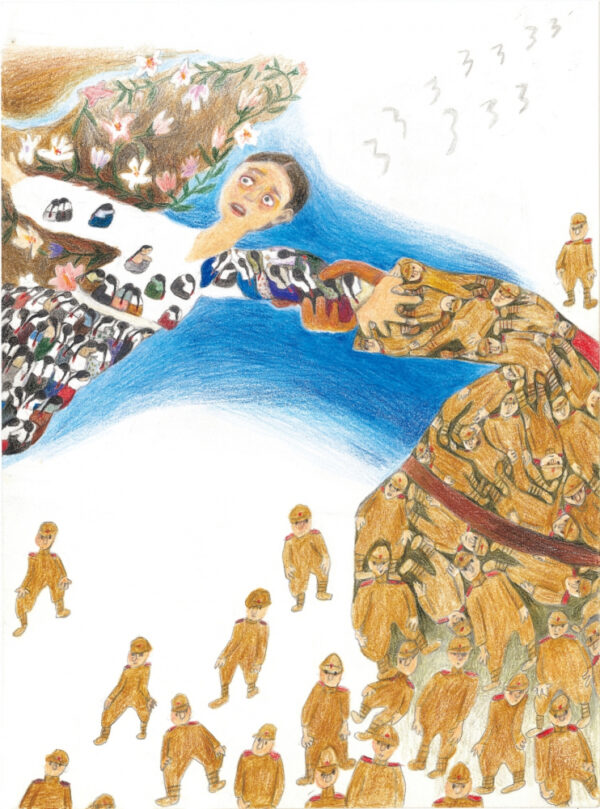On October 27th, 2021, the Centre for the Study of Global Japan at the Munk School of Global Affairs hosted Yujin Woo, Assistant Professor at the Graduate School of Law at Hitotsubashi University. This seminar was moderated by Dr. Phillip Lipscy of the Centre for the Study of Global Japan, and featured Dr. Woo’s most recent research Public Perceptions and Citizenship in Japan. Dr. Woo’s research covers a timely topic given the upcoming election for the lower bicameral body of Japan and the nation’s now-infamous problem of an ageing demographic.
Dr. Woo started her presentation with a suite of descriptive statistics to describe the trends of migration in Japan, which plays a key role in the country’s development and legislation of immigration policy.
The first key statistic that she presented was the Migrant Integration Policy Index (MIPEX) for 2019. The MIPEX gives a quantitative sense from a score of 0 to 100 on what domestic governments do to promote the integration of migrants. In this index, Japan had a score of 47, which somewhat agrees with the common belief of the closed attitude of Japan towards immigrants. anti-immigrant sentiment present within Japan.
However, she contrasts this index score with the cumulative measure of migrants in Japan since 2010. She notes that in 1990, the migrant ratio to the total population stood around 0.9%. The number has since doubled in 2015 and has continually increased. This index score reflects the moderate liberalization of immigration policy in Japan due to growing domestic demands for migrants to compensate for its shrinking population.

Dr. Woo then presents her formal research, which attempts to answer two primary research questions using a standard treatment-control experiment:
- Is public opinion of migration influenced by government policies?
- How do people view the permanent stay (naturalization) of migrants?
To address the first question, Dr. Woo applied a survey experiment combining framing and conjoint analyses. The control group introduced a paragraph describing the demographic issue in Japan and how the Japanese government was considering the relaxation of stringent migration policies. She also added additional sentences for one control group stating how the government has placed special emphasis on marriage migrants and multicultural families. For another control group, she added that the government has emphasized the necessity of labour migrants.
From this experiment, she found a positive effect on both implementations; migration sentiments were more positive among the treatment groups, which read sentences regarding government emphasis on marriage migrants or labour migrants respectively. The experiment suggested that public opinion on migration can indeed be influenced by government policies.
To address the second question, Dr. Woo implemented a vignette experiment that presented participants with a near-identical paragraph detailing naturalization in Japan. Each treatment group was presented with a different number that detailed the percent of foreign residents eligible for citizenship. There were 3 different numbers presented for three treatment groups: 1% (Japan’s average rate), 30% (OECD Average), 70% (US Average Rate).
She found that attitudes towards naturalization were negative as the percentage of eligible foreign residents radically increased; that is treatment groups where the percentage that they read was the highest had the negative sentiments towards naturalization with statistical significance. Thus, while Japanese natives seem to be liberalizing attitudes towards the naturalization by migrants, the radical relaxation of the law may lead to anti-immigration sentiment.
Dr. Woo finishes her presentations by naming out the implications for the newly elected Prime Minister Kishida and his administration. Given her findings, she suggests that if the Japanese government increased their efforts to promote cultural diversity, immigration acceptance in Japan could further accelerate. Furthermore, she encouraged the reciprocal efforts by both natives and immigrants: educating Japanese people to understand multiculturalism along with the continued efforts of incoming migrants to understand the Japanese language and culture for easier integration.
Ricky Kim is a third year student studying Economics. An immigrant from South Korea, Ricky hopes that as an Events Reporter for East Asia, he will be able to learn more about the research conducted about the social workings of his native region. Some topics of interest to him are economic development, international trade and the intersection of culture and economics in societal structure and development.








